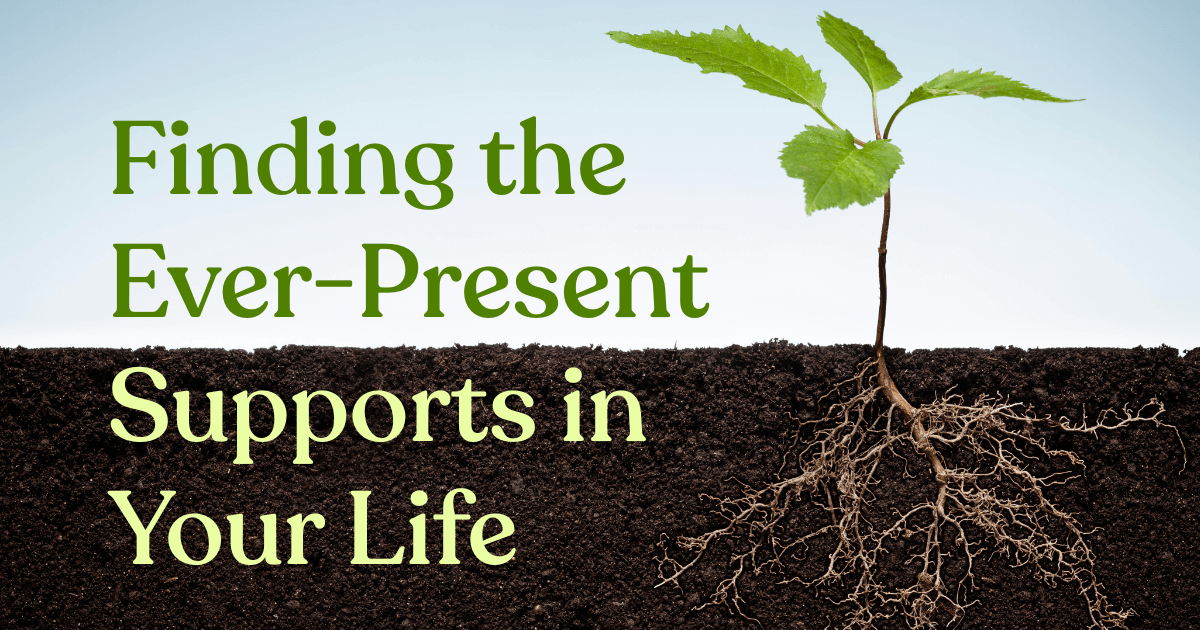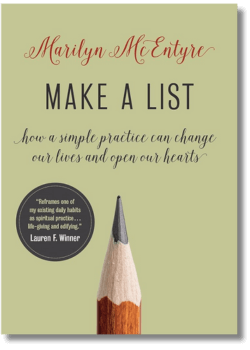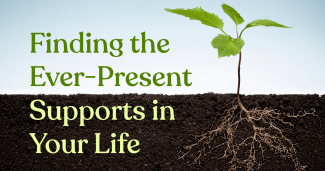Finding the Ever-Present Supports in Your Life

[Editor’s Note: The monthly blog post from Dr. Weingarten is here! Kaethe Weingarten, PhD, founder and advisor of MCN’s Witness to Witness, shares stories, resources, and helpful tips to support health care workers and others through the many stressors of their daily lives. Dr. Weingarten also offers a newsletter (called the W2W Update), filled with resources, recent articles, and her news and views.]
Recently, a beleaguered friend, I will call him J, read something to me from a book that meant a lot to him. He is in a work situation in which he cares deeply about the work that he does and wants to continue doing, but circumstances at his workplace have changed over time and there are now constraints on what he is able to do and this saddens him. He stays at his job, doing less than he could, but doing more than if he left and no one filled his position. He has shared his dilemma with me and other friends, and he gets conflicting advice about what he should do. Stay or leave? These seem to be his options.
He found this exercise in a book whose aim is to create a meaningful dialogue between the foundational ideas of psychology and Buddhism: Already Free: Buddhism Meets Psychotherapy on the Path of Liberation by Bruce Tift. My friend is neither a psychotherapist nor a Buddhist, but a health care worker. It’s an exercise that helps one feel the support that’s already present. Because it was so meaningful to him, he wanted to share the entire passage with me and so I closed my eyes and let the words wash over me. The fundamental premise of the passage, as I understand it, is that there are many supports always and already present, most of which are invisible to us, and we don’t have to do anything to be worthy of them. It goes from the ubiquitous mention of how our breath supports us – who hasn’t been told that? – to something I rarely think about: the “atmospheric gases are in just the right proportions. Gravity is working well.” In particular, making visible something that is always present that I rarely note made me smile. The repeating theme was this: “Allow yourself to feel that sense of support. It is always present. You don’t have to do anything to deserve it or create it.”
That last sentence is a bit trickier than the second, which is just demonstrably true. Many of us grew up in families where unconditional love was the ideal, but contingent love was more the reality. One friend told me the other day about how she had grown up with the idea that she had a light inside her that poor behavior could extinguish and she feared that it might stay out forever if she didn’t obey her family’s rules. It has taken her well into her eighties to consistently affirm that her light is always on.
Taken together, the ideas that there are always supports available to us that we can make visible in our lives and that these supports help us perceive our “light,” find concrete expression for me in friendship and community. I have had many recent examples of this, and I hope when you read mine you will remember or create yours.

On my desk is a book a friend recommended to me by Marilyn McEntyre called Make a List: how a simple practice can change our lives and open our hearts. The book is a delight, and it does what the exercise above does: it makes visible what is already always present that can lift our spirits. In the Appendix are ideas for lists, for instance: “What’s worth waiting for” or “Why children enchant us” and “The benefits of bicycling.” You don’t have to make the lists she suggests – or bicycle, for that matter – for the contents of the lists to lift your spirits.
Yesterday, I had a Zoom call with a friend I haven’t seen in years because she lives in New Zealand. She reached out to me via email because she knows these are hard times. We decided to set up a Zoom call and I said I would use my account. It was wonderful to talk to my friend, but setting up the call with a 20-hour time difference, daylight savings time where I am but not where she lives, was a hoot. We exchanged multiple emails trying to figure out whether what we said we wanted the time of the call to be was what the Zoom link actually provided. Laughter is part of friendship.
Over the weekend I spent time with my youngest granddaughter, T., who is eight years old. Our family lives near each other and T. is very attached to her oldest cousin, A., who lives one town away. A. recently broke her wrist during a track meet and had to have the wrist reduced under anesthesia. Learning about this, T. called her that evening to ask how she was and to hear the full story of what had happened to A. T. had this to say about it,
“Grandma, do you know that when A. woke up from anesthesia she kept calling out 'blue nurse! I want blue nurse!'”
“I did know that. Do you know why she said that?”
“Because that nurse had been really kind to A.”
“Do you know why she called her blue nurse?”
“No, I don’t.”
“Because she was wearing blue clothes. They are called scrubs.”
“Well, I’m really glad blue nurse was so kind to A.”
According to my daughter, A.’s mother, blue nurse was in a busy ED and had many patients besides A. But every time she came in to see A. she was attentive and reassuring. I wonder if blue nurse has any idea what a difference she made by her kindness? Small gestures had ripple effects not just throughout our family but through all of A.’s friendship network. Parents of A.’s friends commented to A.’s parents about how wonderful it was that blue nurse had made such a positive difference to A.’s medical experience.
Like my friend J, blue nurse undoubtedly works in a challenging work environment. Like many health care workers, she likely works in an understaffed ED and thus is likely overworked. But blue nurse is doing what she can where she is. And she is making a difference. People make all kinds of decisions about how to handle tough situations. None of us can fully know another person’s circumstances. The choices people make reflect the weighing of different and often competing values. In the meantime, though, while they sort out options and decide on the best one available – even if, and especially if, the best option has nothing in common with what they would want their options to be – doing work, life, with kindness will create community that strengthens every part of our society at large. When people feel helpless, as many people do, the reliability of kindness as an effective action is undeniable. Rounding back to J. and his exercise, kindness is one of those invisible supports that our daily action can make visible to anyone with whom our lives intersect. Kindness is always already a best option.
- Log in to post comments

